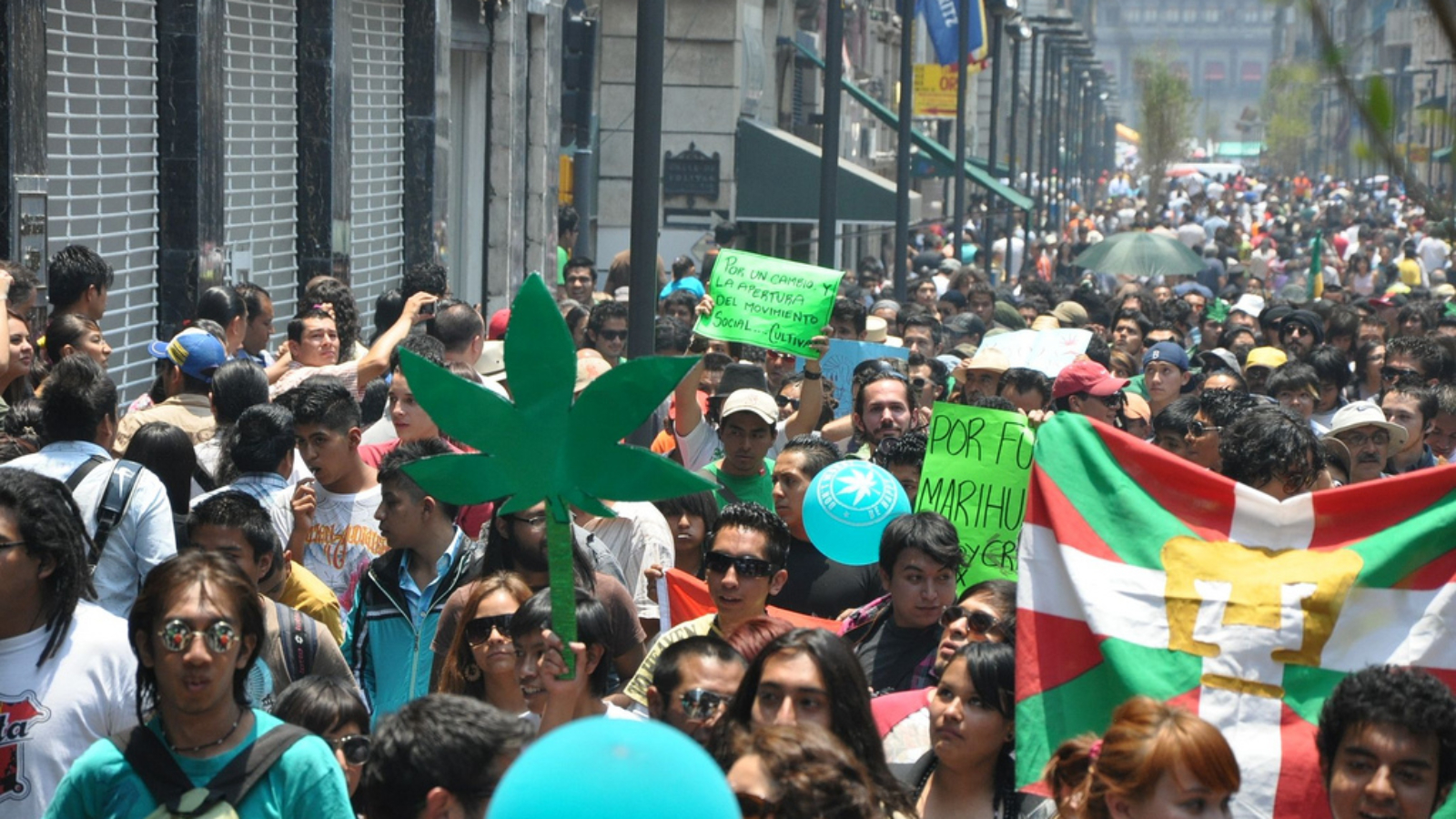By Ana Davila
A lot has happened since 132 countries vowed to reduce the production and consumption of narcotics in the world by 2019 at the first United Nations General Assembly Special Session on Drugs (UNGASS) two decades ago. Not only has this unrealistic goal been substantially deflated in subsequent UNGASS meetings, but also an increasing number of countries is considering whether to move away from the prohibitionist approach that continues to dominate much international drug policy today.
This trend has been particularly visible in the Americas, where governments in Colombia, Costa Rica, Chile, Brazil, and Puerto Rico have taken significant steps toward the legalization of marijuana for medical purposes. Meanwhile countries such as the U.S., Uruguay, and Canada have taken advantage of the somewhat ambiguous language in the international drug control conventions to defend their recent steps towards decriminalizing the recreational use of the drug. “It is clear that today, the Americas are leading the world in marijuana reform. Latin America, in particular, has some of the strongest high-level voices calling for reform,” explains Hannah Hetzer, Policy Manager at the Americas Drug Policy Alliance.
Up until earlier this month, Mexico had held an ambiguous position on the matter in the past despite its international proactivity in drug policy reform. Then on Nov. 4, the highest court in the Latin American giant took a determinant step on behalf of the country; in effect, telling the World Mexico has formally joined the pro-legalization bloc. Though, somewhat to the disappointment of thousands of eager marijuana consumers in the country, the Mexican Supreme Court ruling on the decriminalization of the recreational use of the drug only grants this right to the four citizens who filed a legal complaint early this year. However, experts agree that the court’s decision inaugurates a long but reliable legal process toward marijuana legalization in the country.
In the next few months, according to Attorney Aguinaco Gomez Mont, we can expect to see different groups filing similar petitions and obtaining permits to grow and consume marijuana in Mexico, which will eventually stipulate jurisdiction on the matter and set the bases for proper legalization. We can also expect to witness a growing activism on behalf of the Party of the Democratic Revolution (PRD) in pushing forward diverse initiatives on the medicinal use of marijuana, which have found support even in the conservative wing led by the Party of National Action (PAN).
Yet even at present, the Mexican court’s decision is already having a large-scale impact. What appears to be a small step for Mexico today is, in fact, a big step for the hemisphere in terms of drug policy. The fact that the Mexican Supreme Court has approved the consumption of marijuana for recreational purposes does not just set a precedent in the context of a traditionally conservative society. It also grants explicit legal recognition to two key elements at stake during the debate the unconstitutionality of marijuana prohibition in Mexico and the consideration of the right to consume this drug as a human right, as Aurelio Collado, Professor at ITESM in Monterrey explains. These two arguments, which served as the basis of Judge Zaldivar’s case before the court, will soon translate into an irrefutable legal referent for pro-legalization efforts in other Latin American countries. In this sense, Mexico is not only adding weight to the pro-legalization side of the balance in the hemisphere but is also creating legitimate legal tools to facilitate legalization in other countries.
Mexico’s assumption of a pro-legalization position also reinforces the emerging trends of resistance toward the prohibitionist approach, and strengthens the call for revisionism. As Hetzer explains, “Mexico has played a leading role on the international stage in pushing for an open, honest, and transparent debate on alternatives to drug prohibition, which put all options on the table. But until this case, the domestic discussion had lagged behind. The Supreme Court ruling brings Mexico’s national discussion more in line with the role it has been playing internationally. This will strengthen the role Mexico has been playing, along with a group of ‘like-minded’ countries that has formed, in pushing for a debate on reform at the UNGASS.”
Furthermore, Mexico’s policy congruence only adds to its leading role heading toward the next UNGASS meeting in 2016, which will be held three years earlier than scheduled at Mexico’s request. According to the current administration, there is an urgent need to reform the existing drug strategy and find convergence between national drug policies in the region, as President Enrique Peña Nieto has emphasized. With these actions on the international level alongside important steps taken toward legalization at home, Mexico is significantly reinforcing the consensus on the need to rethink drug policy and to modernize international drug treaties.
In turn, Mexico is assuming an unexpected leadership role in what promises to become an active campaign towards a highly relevant UNGASS in 2016. This year’s meeting will be different from the two previous as, for the first time, members are open to considering alternative paths to drug policy that call into question the existing approach. Doing so will set a foundation to redefine international consensus on the smartest legal approaches to drugs.
As Hetzer concludes, “we won’t see wholesale treaty revision in 2016, but this meeting could lay the framework for an exit strategy to the War on Drugs.” In front of that backdrop, the steps taken toward marijuana legalization in Mexico come not only with serendipitous timing but also with greater regional and international import than they could have ever before.
*****
*****
Ana Davila is an editorial assistant at World Policy Journal.
[Photos courtesy of Jorge Hernandez]
